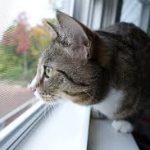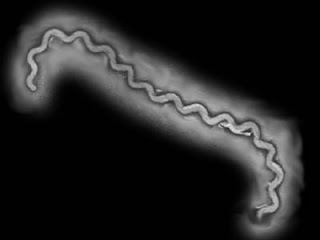Posts Tagged: leptospirosis
Spring Safety Tips for Dogs and Cats
Spring has arrived in Iowa! With the warmer weather comes flowers blooming, spring cleaning and lots of rain! This means there are potential springtime hazards for your furry companions.
Easter
When spring arrives, we know that Easter is not far behind. With Easter comes lilies and candy, items that are very toxic to pets. If ingested lilies can be fatal to our feline friends, even with just a few bites. Chocolate goodies are also toxic to both dogs and cats. The plastic grass in Easter baskets can also cause an obstructed digestive track, causing severe vomiting and dehydration. If you suspect your pet has ingested any of these items, it’s time to visit your Veterinarian.
be fatal to our feline friends, even with just a few bites. Chocolate goodies are also toxic to both dogs and cats. The plastic grass in Easter baskets can also cause an obstructed digestive track, causing severe vomiting and dehydration. If you suspect your pet has ingested any of these items, it’s time to visit your Veterinarian.
Rain and Puddles
The rainy and wet season increases the risk of your dog contracting Leptospirosis, a bacterial disease that is spread by wild anim als. Leptospirosis (lepto) can cause liver and kidney damage. It is also zoonotic, meaning we (humans) can also contract lepto. We carry a vaccine that protects your pooch against the 4 most common strains of lepto. 
Screens
When the weather starts to get warm, we open the windows to welcome the breeze in. Our felines love to lounge in the window sill. Double check to make sure your screens are secure to prevent your cats from falling or jumping out.
Spring Cleaning
Keep those house cleaners and fertilizers away from your pets. Almost all cleaning products contain chemicals that may be harmful to our pets. Store your fertilizers, insecticides and herbicides out of reach of your pets. Follow the instructions on the label carefully to ensure your pet’s safety.
Allergies
Spring can be a prime allergy time for pets just like us. Pets typically express allergies through their skin. If your pet is itchy, biting at his feet or skin seems irritated, there are many things we can do to help them feel more at ease.
Fleas, Ticks and Mosquitoes, Oh My!
With Iowa weather, we see this pesky critters throughout the year and recommend preventive all 12 months of the years for both dogs and cats. If your pet is not on parasite prevention, now is the time to start!
To set up an appointment to see the doctor, click here.
You can also contact Pet Poison Helpline for immediate assistance.
Leptospirosis: Is Your Dog Protected?
LEPTOSPIROSIS: What is it?
Leptospirosis (lepto) is a disease caused by a spiral shaped bacteria. Both humans and animals can be infected with the bacteria. It is most commonly contracted by drinking contaminated water, including rivers, streams, and even puddles. The number of canine lepto cases has dramatically risen in recent years. Today, it is considered the number one infectious cause of acute kidney failure in dogs.
What animals get leptospirosis?
Lepto does not discriminate. It has been diagnosed in all types of dogs and all breeds and sizes are at risk. Common carriers include raccoons, skunks, squirrels, opossums, rats and livestock.
How can my pet get leptospirosis?
Leptospirosis is spread through the urine of infected animals, which gets into water or soil and can survive for weeks to months. Animals become infected when they come in direct contact with the contaminated areas. The bacteria enters through cuts in the skin, through eyes, nose or mouth, as well through ingestion of contaminated water or soil (eat or drink it). The bacteria can also be inhaled.
How does leptospirosis affect my animal?
In dogs, leptospirosis can cause fever, vomiting, diarrhea, decreased appetite, weakness, stiffness, and muscle pain. Each patient is different when it comes to leptospirosis. Some have very few signs and others become very sick. Kidney and liver damage can also occur from this disease. As mentioned before, it is the number one infectious cause of acute kidney failure in dogs. In general, young animals tend to be severely affected then older animals.
Can humans get leptospirosis?
YES! Humans can become infected with leptospirosis in ways similar to animals. In addition to touching, inhaling or ingesting contaminated water or soil, humans can also get leptospirosis by coming in contact with infected urine from animals (including dogs).
*** In a recent research study, leptospirosis was found to be one of the top diseases spread from pets to people (this is called a zoonotic disease).
How do I protect my pet and myself from leptospirosis?
Avoiding contact with contaminated areas is one main way to prevent disease, but far too often we cannot know when an area is contaminated. Discourage your dog from drinking from standing water.
Vaccination is one of the best ways we can help prevent disease. The vaccine protects dogs from the 4 most common serovars (types) of leptospriosis. It is a series of 2 vaccines (3 weeks apart) for the first year, then annually after that. This is one of the best ways to protect you and your pet from this nasty disease!


